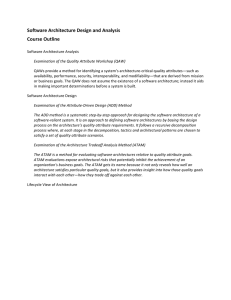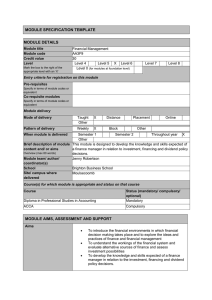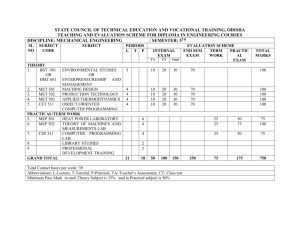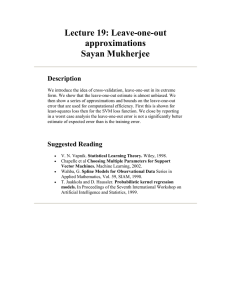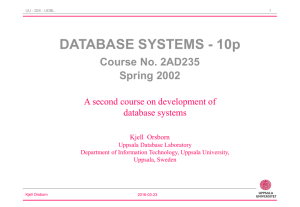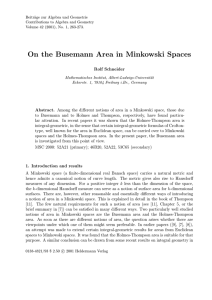Data Mining Assignment 1
advertisement
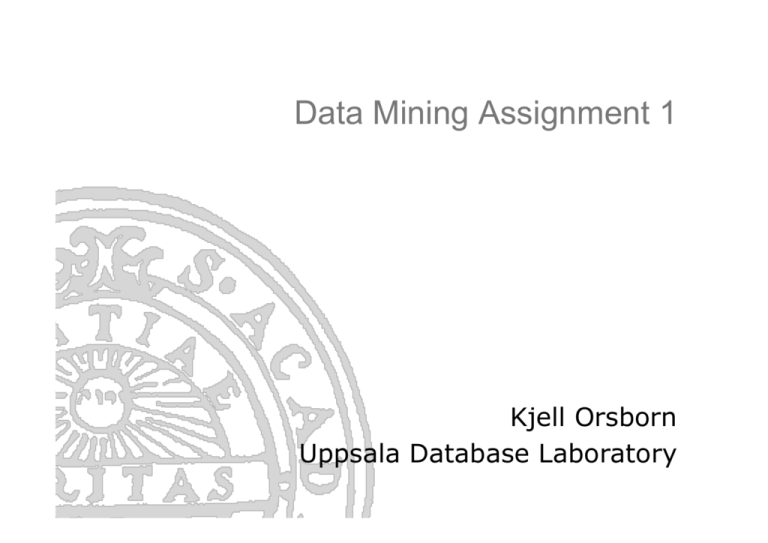
Data Mining Assignment 1 Kjell Orsborn Uppsala Database Laboratory Oral exam § Two parts: 1. Validation § Your solution is validated using a script • If your solution does not work à the examination ends immediately (“fail” grade is given) à you may re-do the examination later 2. Discussion § § § Prepare answers to the written questions The instructor will ask additional questions • • about your solution about the method All group members must be able to answer • Group members can get different grades on the same assignment 9/17/12 2 Grades Fail Pass Before end of October 9/17/12 3 What you need to do In advance, go through and read the material so you are prepared for the assignment. Sign up your group of 2 students through student portal. Attend the lab and sign up for examination on A4 sheet Implement a solution § § § § • Deadline: Submit through student portal no later than 24h before your examination. Prepare answers to the questions Prepare for the discussion § § • 9/17/12 Understand the theory 4 Assignment 1 in a nutshell § You will get • 163 data points with known class belonging • 30 data points with unknown class belonging • A kNN implementation § Improve classifier performance • • • • • Find the best k Normalization (max-min, Gaussian) Metrics (Minkowski r = ?) Vote weighting Optional: Attribute weighting § Using your parameter settings, classify the 30 data points 9/17/12 5 Things to consider: Know your data! 1. Normalize ⊂ Pre-process • What is the range of each attribute? • Is one attribute more important than another? • • If so, what should we do? If not, should we do anything else? • You can assume: no missing points, no noise. 2. Select training + testing data • Is the data sorted? • Does it matter? If so, is this good or bad? • Are there any alternatives to leave-one-out cross validation? 3. Choose k • How do you know if the value of k is good? 9/17/12 6 Know your data! 4. How many points of each class are there? • Should this observation affect the choice of k? 5. Choose distance measure • What distance measure is suitable? Why? • • Euclid, Minkowski, and maxnorm are available in AmosII. You can implement other distance measures, similarity measures, etc… 6. Classify unknown data • • 9/17/12 Should the unknown data be normalized? How? Which data set should be used to classify the unknown data? 7






